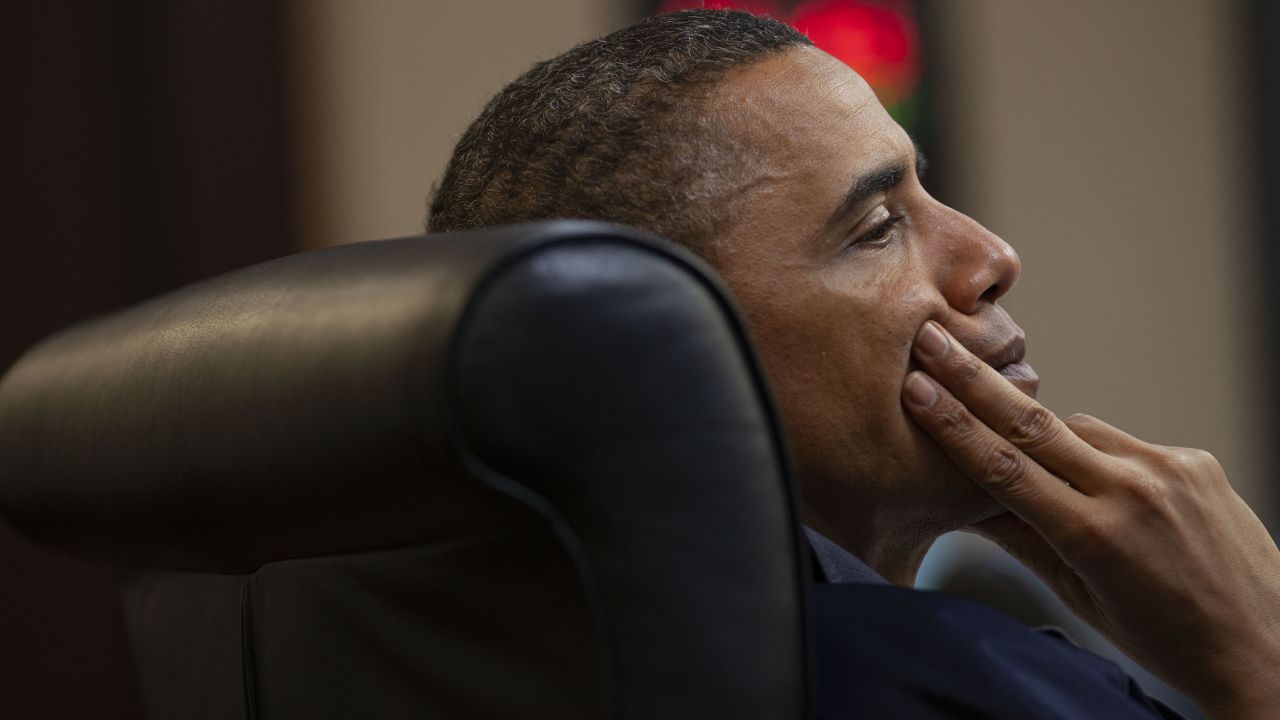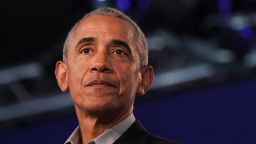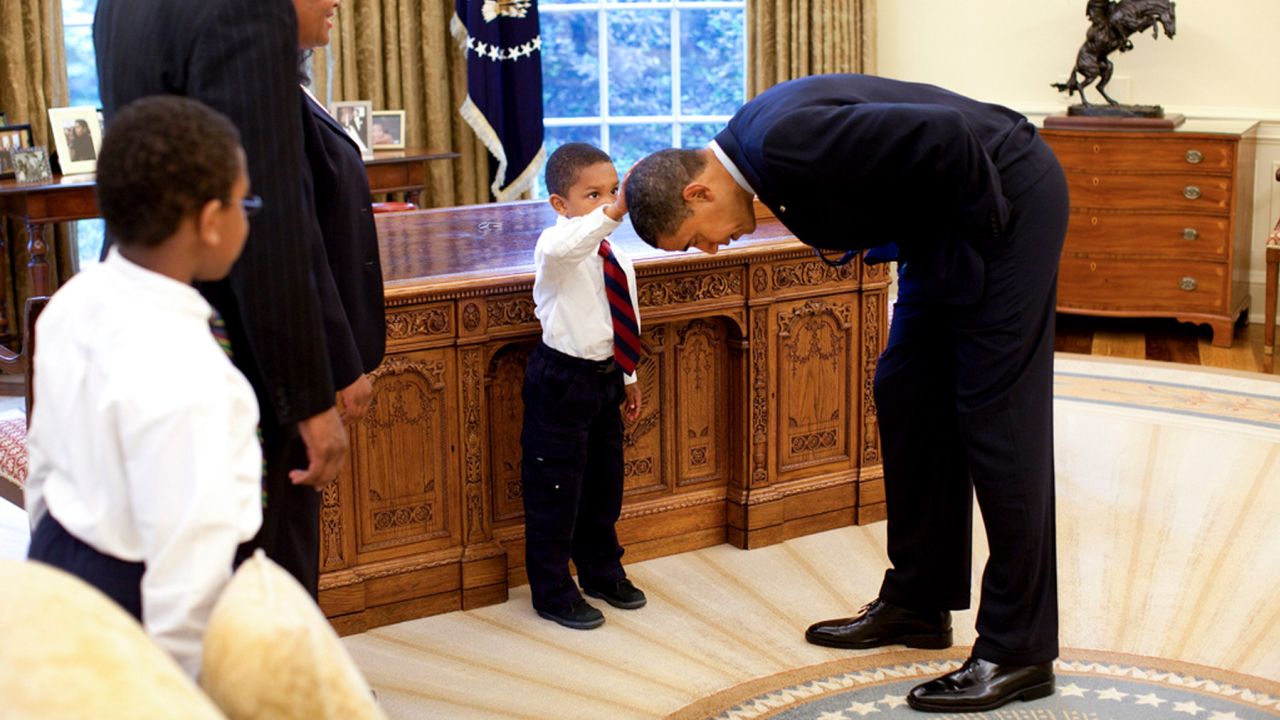begin quote from:
https://www.cnn.com/2023/05/20/opinions/barack-obama-presidency-lesson-axelrod/index.html
David Axelrod: After Barack Obama, America will never be the same

Editor’s Note: Watch “The 2010s” Sundays at 9 p.m. ET. David Axelrod, a CNN senior political commentator and host of “The Axe Files,” was a senior adviser to former President Barack Obama and chief strategist for the 2008 and 2012 Obama presidential campaigns. The opinions expressed in this commentary are his own. View more opinion on CNN.
In all the years I worked for Barack Obama, I didn’t think enough about the burdens of being America’s first Black president – in part because he bore them so gracefully.
There were bracing moments, of course, like the day, relatively early in his campaign for the White House, when Secret Service agents became a constant presence in his life, given the inordinate number of death threats against him.
There were the overtly racist memes about his citizenship and faith and worthiness, fueled by demagogues and social media, that continued throughout his presidency.
There was the startling outburst from a Southern congressman, who shouted “You lie!” during a presidential address to Congress – an intrusion that has since become more common but back then was a stunning departure from civic norms.
Among Obama’s staff, we dealt with these moments mostly as political challenges to navigate. And while he addressed issues of race, Obama rarely spoke, publicly or privately, about the unique pressures he faced personally.
It took someone else to open my eyes and cause me to think more deeply about the extraordinary burden – and responsibility – of being a trailblazer at the highest of heights in a nation where the struggle against racism is ongoing.
In 2009, Obama was considering nominating Sonia Sotomayor, a highly regarded federal appellate judge from New York, for a seat on the US Supreme Court.
If appointed, Sotomayor would become the first Latina on the nation’s highest court. The president asked me to chat with her and assess how she would hold up under the pressures of the confirmation process and that weighty history.
I met with Sotomayor in the Eisenhower Executive Office Building on the White House complex, where she had been spirited for a final round of clandestine interviews. I asked her what, if anything, worried her about the process.
“I worry about not measuring up,” she said, bluntly.
It was instantly clear to me that this brilliant, accomplished judge, who fought her way from poverty in the South Bronx to Princeton and Yale Law School, was talking about more than her own ambitions. As The First, she knew she also would be carrying with her the hopes and aspirations of young Latinas everywhere. Her success would be their inspiration. Her failure would be their setback.
That conversation prompted me to reconsider the unspoken burden the president himself had navigated so well for so long under the most intense spotlight on the planet. The burden was not just racism but the responsibility to measure up, to excel, to shatter stereotypes and to be an impeccable role model in one of the world’s toughest and most consequential jobs.
Watching the episode of CNN’s documentary series “The 2010s” about Obama, I was reminded again of how well he weathered those burdens.
It isn’t that he got everything right. No president does. And there always will be a debate about how much the election of the first Black president contributed to the reactionary backlash that yielded Donald Trump, a divisive and toxic figure who would lead the country in an entirely different direction.
But the history is clear: Obama led the nation through an epic economic crisis and war, passed landmark legislation on health care and strengthened the social safety net, bolstered America’s standing in the world and, in our most painful moments, comforted the nation by speaking eloquently to what Abraham Lincoln called the “better angels of our nature.”
Against the relentless pressure of being First and all the anger and resentment that it may have stirred among some fearful of change, Obama was consistently thoughtful, honorable and poised. He carried himself with the comforting authenticity of a man who knows who he is – and never flinched.
When Obama was considering a campaign for president in the fall of 2006, a small group of friends and advisers gathered with him in my office in Chicago to assess a possible race.
Michelle Obama – perhaps the greatest skeptic in the room at that moment about the advisability of such an audacious journey – asked a fundamental question: “Barack, it kind of comes down to this. There are a lot of good, capable people running for president. What do you think you could contribute that the others couldn’t?”
“There are a lot of ways to answer that but one thing I know for sure: The day I raise my hand to take that oath of office as president of the United States,” he said, lifting his right hand, “the world will look at us differently and millions of kids – Black kids, Hispanic kids – will look at themselves differently.”
Two years later, in Chicago’s Grant Park, where Obama claimed victory, I watched a sea of humanity, including Black parents, with tears rolling down their cheeks, as they held their kids aloft to witness the scene.
And then there was the iconic photo in the Oval Office of five-year-old Jacob Philadelphia, the son of a White House staffer who was leaving the administration. The little boy, who is Black, stood dressed in a shirt and a tie. He had looked up at the president and asked, “Is your hair like mine?” Obama bowed his head toward the boy and told him, “Go ahead, touch it,” which he did.
It was a moving, spontaneous scene captured by the splendid White House photographer Pete Souza. The moment spoke volumes about Obama, his meaning in our history and the unique responsibly he bore.
As the president bowed his head to this little boy, his unspoken message was clear: “Yes, you are like me. Yes, you can dream big dreams.”
Under extraordinary pressures, Obama more than “measured up,” not just as a president but as a role model. As a First.
And for that alone, America will never be the same.



No comments:
Post a Comment